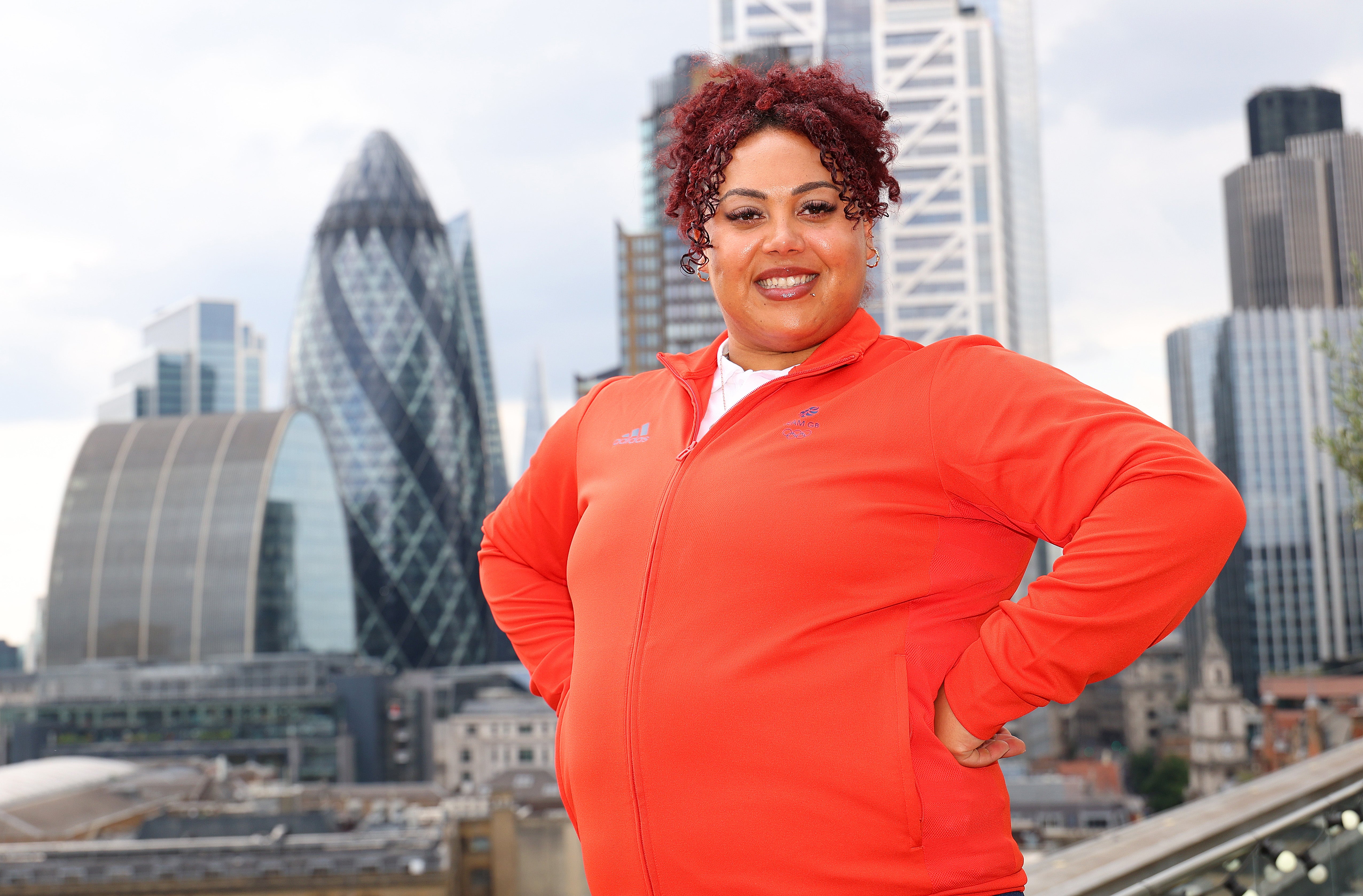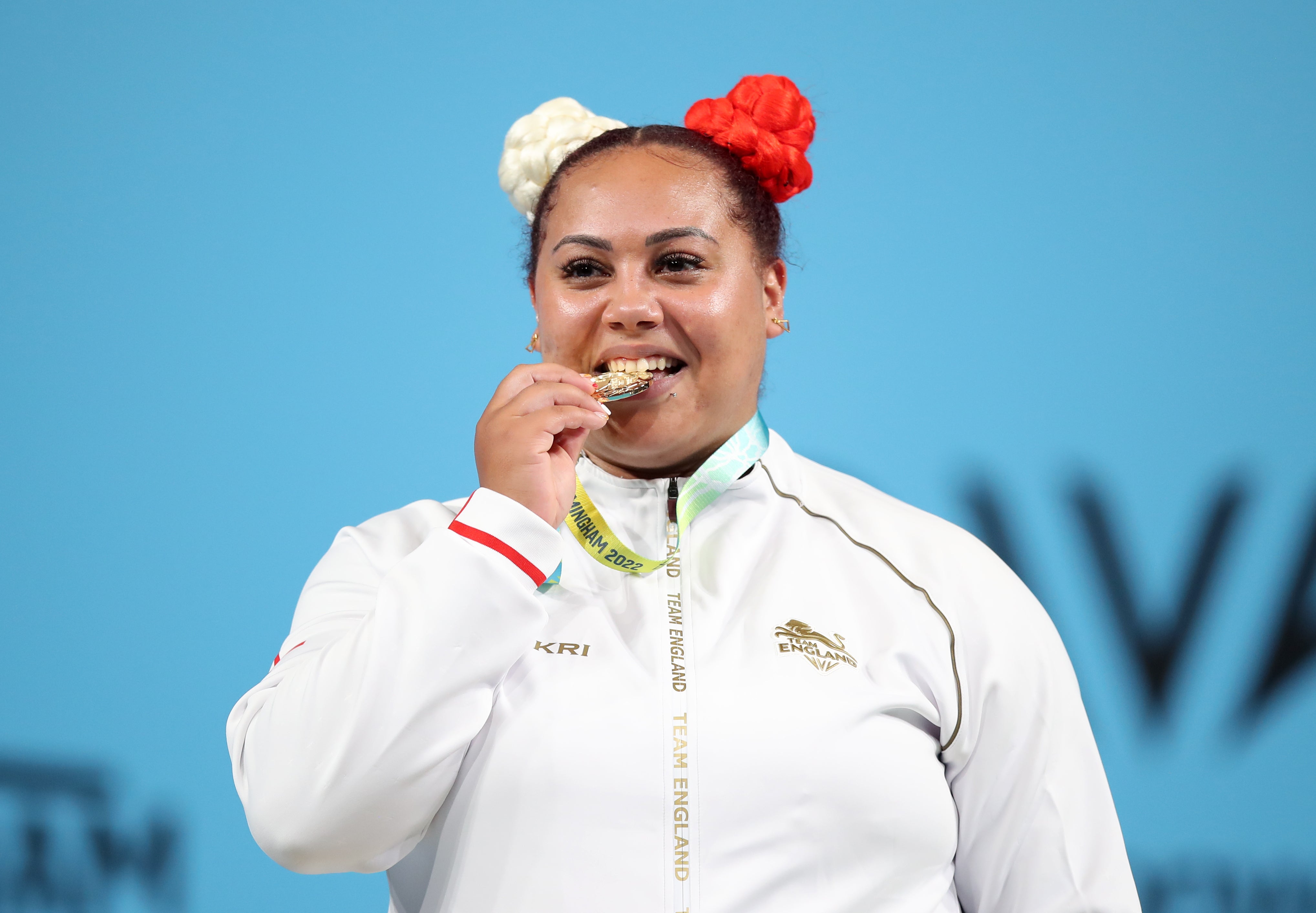This website uses cookies so that we can provide you with the best user experience possible. Cookie information is stored in your browser and performs functions such as recognising you when you return to our website and helping our team to understand which sections of the website you find most interesting and useful.
Support truly
independent journalism
Our mission is to deliver unbiased, fact-based reporting that holds power to account and exposes the truth.
Whether $5 or $50, every contribution counts.
Support us to deliver journalism without an agenda.

Louise Thomas
Editor
“Everyone’s beatable,” says Emily Campbell, and that is a bolder statement than it might first sound. Campbell is the only female Olympic medallist in the history of British weightlifting after winning silver in Tokyo three years ago. But her conqueror there was the Chinese phenomenon Li Wenwen, a 24-stone colossus of furious strength, and they clash again in Paris.
At 24, Li is already twice a world champion and holds world records in both snatch and clean & jerk. At her best competing with Li is a bit like trying to outrun peak Usain Bolt. Li showed some weakness at last year’s World Championships and pulled out with an elbow injury, but she appears back to full strength this season.
Campbell is undeterred. “Nothing’s a given. If there’s an opportunity for me to win that gold on the day, you know that my team will put it on the bar and I will give it my best crack. Hopefully I’ll stand up with it.”

Campbell is the only female Olympic medallist in the history of British weightlifting, and carries the country on her shoulders in Paris as the only entrant in the sport. She has achieved almost everything there is to achieve – European champion, Commonwealth champion, with world and Olympic silver medals – but there is still work to do, still medals on the table left to grasp.
“I’ve always had a list of goals that I wanted to tick off,” she says. “I’m nearly there, I’ve nearly done them, but the list is not complete. And as long as the list is not complete, I’m always going to have that fire.”
Her rise has been fuelled by a positive outlook on life and on sport. Campbell has been the victim of online abuse and body shaming along the way, and has risen above it to become an inspirational figure exuding body positivity, proud to be one of the most powerful women on the planet.
“I’ve had two amazing parents that have always raised me to believe in how unique I am and to capitalise on that,” she says.
Her father moved to Britain from Jamaica as a young boy and grew up with little. Two years ago, he watched as both Emily and her younger sister Kelsie competed at the Commonwealth Games – Emily for Britain and Kelsie, a swimmer, representing Jamaica.
“For my parents that was a very special moment. My dad always said, ‘no one’s gonna give you anything in life, you have to work really hard for it’. The one big lesson they always taught us was that it’s alright to fail. That’s how we learn, by making mistakes. That’s something I’ve always carried with me.”
What we’re doing is not normal. As much as you would love to be injury free, it’s not realistic
Emily Campbell
Without this try-anything mentality Campbell might never have discovered the sport. She was a field athlete in her teens, throwing discus, shot put and hammer with promise but some way short of Olympic medal potential. It was her coach at Leeds Beckett University who encouraged her to try weightlifting as a training method, and she quickly uncovered a new talent.
Her road to Paris has not been smooth. She went without central funding for several years and worked as a teacher in a special needs school alongside training to pay the bills. Her Olympic silver medal helped secure the backing to train full-time, but wrist and back injuries have hampered her progress since a golden 2022 of European and Commonwealth glory.
Injury is a desolate place in weightlifting, perhaps even more so than other sports. “There’s no other way we can train,” Campbell explains. “It’s not like if you’re a runner and you can’t quite run for a bit, then you can get on the bike and you can still keep a certain amount of fitness. For us to get strong, you have to lift weights.”
Few sports tread such a fine line between exertion and injury. Every muscle in the body is activated, and building them requires a stress on the body – especially the knee and wrist joints, and the spine – which can trigger a serious setback to an athlete’s career and a threat to their livelihood. “What we’re doing is not normal. As much as you would love to be injury free, it’s not realistic. But there’s always light at the end of the tunnel.”

Funding has given Campbell access to technology to help curate training based on more than gut feel. She uses an ergonomic tracker strapped to the bar which measures speed, path and power to monitor how she is moving, and whether her form and technique is controlled enough on a given day to justify increasing weight.
It was hard adjusting to full-time training which meant a change in mindset and in expectation. But it opened her eyes to what she could achieve. “That’s when I started to realise possibilities were endless,” she says.
Campbell already has her life after sport mapped out, and plans to open a gym that teaches children the core techniques for lifting weights and all the health benefits they bring.
“People don’t know that kids can start weightlifting from around six, seven years old. We have technique bars, we have bumper plates. It’s not about the weight that they lift, it’s about the body awareness. It’s about being able to move the body properly. It’s about physical literacy. It’s about kids knowing that movement, fitness and sport is important for everybody in life.”

All that can wait. First Campbell will try to upgrade Olympic silver to gold, up against one of the greats of her sport. At 30, in a discipline where the next injury could be just around the corner, this might be her last chance, but she will keep fighting to complete her tick list.
“I love getting on the platform. I love lifting weights. I love trying to entertain people, and I know that my fire for that’s not gone yet. I’m gonna keep doing that until the fire dwindles.”



 Africana55 Radio
Africana55 Radio 
